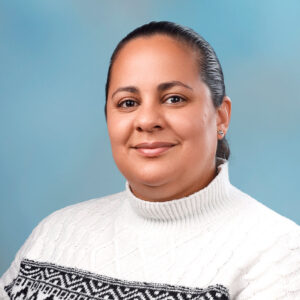
News
Plant Breeding
Pulses
USask appoints new lentil and faba bean breeder
December 20, 2023 By Top Crop Manager
Dr. Ana Vargas (PhD) has been appointed as the new lentil and faba bean breeder and an Agri-Food Innovation Fund chair at the University of Saskatchewan (USask).
“Pulses play an important role in sustainable agriculture and food security. We are excited for Dr. Vargas to join our team of researchers that are committed to tackling the great challenges facing society today, particularly those at the interface of agriculture and environment, and that are critical in ensuring a safe and sustainable food supply,” says Dr. Angela Bedard-Haughn (PhD), dean of the College of Agriculture and Bioresources.
Starting Jan. 2, 2024, Vargas will lead the successful lentil and faba bean breeding program at the Crop Development Centre (CDC) in the College of Agriculture and Bioresources. To date, the program has released 40 lentil and five faba bean varieties.

Dr. Ana Vargas.
“The Crop Development Centre has been instrumental in developing new lentil and faba bean varieties that contribute to diverse and sustainable agriculture production systems. We are thrilled to welcome Dr. Vargas to her new role. Her passion for crop breeding, research, and innovation will contribute to our vision to be a world-class crop improvement centre that delivers crop genetics for society,” says Dr. Curtis Pozniak (PhD), director of USask’s CDC.
Vargas says she looks forward to developing lentil and faba bean varieties that will positively impact farmers and western Canadian agriculture.
“The Crop Development Centre and the University of Saskatchewan have a great history of excellence, innovation and collaboration that make our institution the best place to work. I look forward to building upon this great history through my experience and passion for pulses and crop improvement,” says Vargas, who grew up in Central America and worked in common bean and corn breeding before coming to USask for her PhD.
She received a master’s degree in agronomy from the University of Puerto Rico – Mayaguez and a bachelor of science in agronomy from the Zamorano Pan-American Agricultural School in Tegucigalpa, Honduras.
Vargas obtained a PhD in plant breeding and genetics from USask in 2021, exploring genetic resources for improving nitrogen fixation and dissecting the genetics of nodulation among Lens species.
“I first got interested in crop improvement as a child, living on a small farm and having a deep understanding of the challenges farmers face. It was always clear to me that I wanted to be a pulse breeder and I am grateful to have had great opportunities working with different pulses, as a researcher and graduate student since then,” says Vargas.
Prior to her appointment, Vargas was a post-doctoral fellow in the Department of Plant Sciences, working in lentils and common beans under the supervision of Dr. Kirstin Bett (PhD). Vargas’ research areas in lentil include micronutrients, seed quality and colour stability, nitrogen fixation, and protein and disease resistance.
Vargas will also hold an assistant professor appointment in the Department of Plant Sciences.
The endowed chair was established under the Canada-Saskatchewan Agri-Food Innovation Agreement through the Agri-Food Innovation Fund (AFIF). This is one of four AFIF chairs that were created at USask to complement and strengthen expertise at the university.
“The growth of lentil acres in Saskatchewan is a tremendous success story in our province, and faba beans also present significant opportunity with the arrival of new varieties. We look forward to continued advancements through the work of the Crop Development Centre that will contribute to the sustainability story of Saskatchewan,” says Saskatchewan Agriculture minister David Marit.
For Vargas, pulses are key for food security, sustainable agriculture, human health, and agriculture and food innovation.
“Pulses are finally getting the recognition they deserve, and I aim to fully take advantage of it. The future is very bright for lentils and faba beans,” says Vargas.